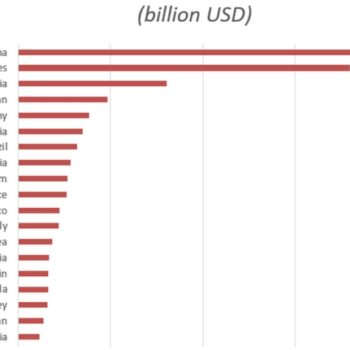
- Eugene Isaev
- April 11, 2016
- 15082
Doing Business in Russia: Choosing the Right Company Structure for Your Business
When entering the Russian market to do business, one of the first questions investors are faced with is the type of legal structure that makes the most sense for their business. You can choose between a number of different forms of business representations, including:
- Branches and Representative Offices (ROs)
- Legal Entities
- Limited Liability Companies (LLCs)
- Joint Stock Companies (JSCs)
- Joint Activity Agreements (a.k.a. Simple Partnerships)
Branches and Representative Offices (ROs)
Both branches and Representative Offices (ROs) are subdivisions of a foreign legal entity (FLE) according to the Russian Civil Code, they do not constitute separate legal entities. They may act on the basis of regulations approved by the legal entity that has created them.
According to the Russian Civil Code, the difference between a representation office and a branch is that an RO cannot carry on business. As the name suggests, an RO can only represent the interests of a legal entity. The branch, in turn, can both represent and carry on business. In practice, this means that a branch could bill for services, carry out transactions in its own name, and accept payment from clients to its own bank account. In present day practice, this difference does not have any practical effect. The tax authority, which plays a key role, has accepted the fact that ROs conduct business activities as well. However, the Civil Code is clear on this point, and that is why, to avoid risks, we generally recommend to our clients carrying on business in the form of a branch, and conducting representative and marketing activities in the form of a representative office.
It will take about 1.5 months to accredit the branch / RO after we submit all the necessary documents and information to the tax office.
Registration process:
1. Approval of the number of foreign employees by the Russian Chamber of Commerce and Industry
Foreign companies are required to get the number of foreign nationals employed by their Russian branches or ROs approved by the Russian Chamber of Commerce and Industry. Awara can prepare all the documents necessary for such approval and liaise with the Russian Chamber of Commerce and Industry regarding the number of foreign nationals who will be employed by your Russian office.
2. Accreditation of the branch or RO with the registration authority
We can prepare the necessary documents for accreditation of a separate subdivision, including:
– Application for accreditation
– The decision of the foreign legal entity to establish a branch / representative office
– Founding documents (including the statute of the branch / representative office)
– Power of attorney for Head of branch / representative office
– Power of attorney for our staff to deliver and receive documents from the registration authorities
We ourselves will submit all the necessary documents for accreditation with the authorities and receive them from the authorities after accreditation.
It will take about 1.5 months to accredit the branch / RO after we submit all the necessary documents and information to the tax office.
3. Registration with tax authorities and statistics authorities
A foreign company is subject to tax registration with the tax office at the location of the branch or representative office. The branch / RO also needs to register with the statistics authorities. We can prepare the necessary documents for registering the branch / representative with the tax and statistics authorities and obtain the documents from them after registration.
4. Registration of the branch or RO with the State Social Insurance Fund and Pension Fund
In the event that the branch / RO will open accounts in Russian banks and the branch / RO will accrue payroll and other employee benefits, the branch / RO will need to register with the Pension Fund and the Social Insurance Fund. We will prepare the necessary documents for registration of the branch / representative in the pension fund and social insurance fund, and register it in these funds.
5. Opening of bank account for the branch or RO in a bank in Russia
You can forego opening an account for a [branch / representative office]. However, in practice it may be difficult to pay taxes and make other payments to the state authorities in Russia. In this connection, we recommend that you open an account.
6. Head and Address of the branch or representative office
Please note that you will be required to appoint a Russian citizen as head of the separate subdivision to accredit the separate subdivision. Under Russian law, all foreign citizens intending to work in Russia must obtain a work permit. This work permit is already required for a foreign national’s formal appointment as a Head of separate subdivision, and is not dependent on actual work performed, actual stay in Russia, or payment of salary. Work permits may not be obtained before registration of the separate subdivision. This in turn means that at the stage of registration, the function of Head of the separate subdivision must be assigned to a Russian national. In this regard, we offer as a solution that our lawyer would function as the Head of the separate subdivision at the stage of registration.
For purposes of the registration, the separate subdivision needs to have an address available. If your company does not plan to lease an office, we would be glad to provide you with a legal (postal) address.
7. Personal accreditation of foreign employees of a branch or representative office
All foreign employees of the branch / RO must be individually accredited by the Russian Chamber of Commerce and Industry. We will prepare the necessary documents to obtain personal accreditation and obtain it for foreign employees.
8. Immigration Issues
Foreign employees who will work in the branch or RO need to obtain a work visa and work permit. To obtain work permits for foreign employees requires passing an exam on the Russian language, the foundations of Russian legislation and the history of Russia. Taking the exam is not required if the annual salary of the employee will be at least RUB 2,000,000. At your request, we will be happy to provide you more details about how to obtain visas, work permits and the types available.
Legal Entities
An FLE (Foreign Legal Entity) may take the full step into Russian business by investing in a wholly or partially owned subsidiary. (When the shareholding of the local entity is divided between one or more Russian or foreign companies, people often refer to the local entity as a ‘joint venture.’ But there is in fact no special legal form of ‘joint venture’ – the actual legal form of such a firm is any of the permissible legal forms by Russian law).
The two most common corporate structures established by an FLE in Russia under corporate law are:
- Joint Stock Companies (JSCs)
- Limited Liability Companies (LLCs)
JSCs and LLCs are the FLE’s Russian subsidiaries, regulated by the RF Civil Code in conjunction with their respective laws.
As of September 1st, 2014, the law changed significantly in regards to legal entities. In this amendment of the Civil Code, the OAO and ZAO distinction was abolished and both forms were qualified just as joint stock companies (JSCs) with a new distinction between public and non-public corporations. Previously, a joint stock company could be registered either in the form of a “closed” Stock Company (Russian “ZAO”) or an “open” stock company (Russian “OAO”). Publicly traded companies were registered as OAO. A new distinction between public and non-public corporations was created. Corporations, the shares of which are publicly issued or traded now qualify as public corporations. And it is by this factual criterion that such companies would be subject to more severe governance and disclosure provisions. Other stock companies and OOO (LLC) companies would qualify as non-public corporations.
Public JSCs list their shares and securities publicly (meaning that they are placed in open subscription). Although the name of the JSC must nowadays indicate a public company, the name may not give indication to being a public company if it was formed before the amendments to the laws. Open subscription of shares may be conducted to anyone and as many as they wish. There is no limits to number of shareholders. Minimum charter capital is 100,000 RUB. The board of directors must have at least five members. The Registrar and Counting commission’s duties are outsourced to an independent organization with a license for that kind of work. Shares and votes cannot be restricted to shareholders, meaning they can be as many and whichever value. No shareholder has the right for pre-emption over any shares placed for sale if another shareholder withdraws, except if the shares are additionally issued or other securities that can be converted into shares. The Charter cannot comment on the competence of the general meeting of shareholders for functions not listed by the RF Civil Code and the JSC Law.
Non-public JSCs differ in several aspects from public JSCs. First of all, as their type indicates, they are not listed publicly. There is also no obligation to establish a board of directors. The shares and votes can be restricted for shareholders. The Charter can comment to the competence of the general meeting of shareholders in functions not listed by the RF Civil Code and the JSC Law.
An LLC is usually the choice for foreign companies’ wholly-owned business due to the least amount of statutory obligations. Limited Liability Companies (LLCs) can be said to be the easiest company structure to run in Russia, due to the least amount bureaucratic burden. LLCs are abbreviated ‘OOO’ in Russian, which stands for “Obshchestvo s ogranichennoi otvetstvennostyu”.
LLCs and JSCs differ in that JSCs can issue shares and LLCs cannot. LLCs equity is determined by their capital contribution to the charter, and is divided into “units”, thus the investors may simply be called “participants”. LLCs are not subject to Russian law on securities, like JSCs. LLCs may also be financed by other contributions to the company’s property. The charter capital of an LLC must exceed 10,000 RUB and there cannot be over 50 participants. Transfer of participation units may be limited or restricted by the LLC charters or its participants.
Every joint stock company (regardless of financial perfomance) is required under Russian law to conduct a statutory audit (for more information on statutory audit in Russia please refer to this article).
LLCs are founded solely based on Charters. Participants can withdraw without the consent of others as stipulated in the Charter, normally by submitting an application or by requesting the LLC to gain back his/her unit.
There are no differences in the tax treatment of the various forms of legal entities, but other issues might affect the choice of legal form.
LLCs and JSCs both face fairly simple registration processes, as follows:
- State and tax registration
- Stamp creation
- Registration with the State Statistics Committee
- Registration with social funds
For an LLC it normally takes about three to four weeks from the date of submitting documents to the appropriate authorities. For JSCs the time is slightly increased, as the share issue needs to be registered with the Bank of Russia.
Less than often, but it happens that companies need to apply for approval of the Federal Antimonopoly Service before being able to be set up. This usually depends on the magnitude and significance of the assets or sales revenue of the founder(s). To get this approval may take about two months.
LLCs and JSCs pose low risk for their participants/shareholders, as they cannot be held liable for their companies’ wrongdoings; they can lose only what they have contributed. The FLE parent company of either an LLC or a JSC, however, could be held liable together with the subsidiary for any misconduct, if it is considered that orders are given by it.
Russian companies cannot be fully owned by another company that only has one shareholder, there must be more than one shareholder or participant.
Other possible types of legal entities are:
— Full partnership
— Limited partnership
— Production cooperative
A full partnership (“polnoe tovarischestvo”) is a commercial organization, the members of which (partners) according to the concluded agreement carry out business activities on behalf of the partnership and have personal responsibility for its liabilities. General partnerships operate under constitutive agreements, which are signed by all members of the partnership.
A limited partnership (“tovarischestvo na vere” ) is a commercial organization in which there are partners and limited partners. Limited partners are investors who bear risk of losses up to the amount of their investments and do not participate in the business activities of the partnership.
Partnerships are generally not very popular in Russia and are usually used only for conducting limited set of activities such as legal services, audit assurance, etc.
Joint Activity Agreements (JAAs) also known as Simple Partnerships
Sometimes, foreign companies may wish to partner up with a local Russian entity and form a Joint Activity Agreement (JAA) also known as a Simple Partnership. This is not a legal entity but a representation of the pooling of assets for doing business together. A JAA provides a way to limit the Russian presence while being actively engaged in Russian business.
The Russian Civil Code (art. 1041-1054) provides for this form of co-operation, and provisions regarding a JAA are also in the Tax Code (art. 174.1, 180, 278). A JAA is basically a profit sharing arrangement where the foreign party contributes funds, property and know-how, and the Russian party usually manages the business according to the agreement between the parties. Based on the circumstances at hand, a JAA may or may not be deemed to form a Permanent Establishment. The JAA is taxed at the level of its participants with the exception of the Value Added Tax (art. 174.1) and Excise Tax (art.180, Tax Code). The Russian partner, who is the managing partner, has the obligation of accounting by keeping separate books for the JAA and filing the Tax Returns. Income from the JAA is subject to Russian withholding tax. Hereby, an applicable Tax Treaty may provide relief.
A special form of joint activity is the investment partnership based on the law passed on January 1, 2012 (Law No. 335-ФЗ «On Investment Partnerships» of 28.11.2011). The investment partnership is mainly intended for attracting private equity and venture capital to innovative businesses. The investment partnership does not constitute a legal entity.
Conclusion
Whether you are choosing between a branch, RO, one of many types of legal entities or a JAA for example, the best fitting answer for the type of legal structure your company should choose lies in the purpose of having the business represented in Russia.
Awara lawyers would be glad to assist you with company set up in Russia. Our services include:
- Registration of LLC/OOO, AO, PAO, representative office, branch, etc.
- Registration of the legal address of the company
- Preparation of the documents package required for the company set-up in accordance with the legislation of Russian Federation
- Consulting on the choice of the optimal tax system and tax registration of the company
- Implementation of registration (preparation, submission and receipt of documents) with the tax authorities and state statistics service
- Preparation and submission of documents for opening of settlement accounts
- Registration of organization with extra-budgetary funds
Our Contacts
- +7 495 225-30-38 Moscow
- +7 812 244-75-49 Saint Petersburg
- +7 495 225-30-38 Tver


